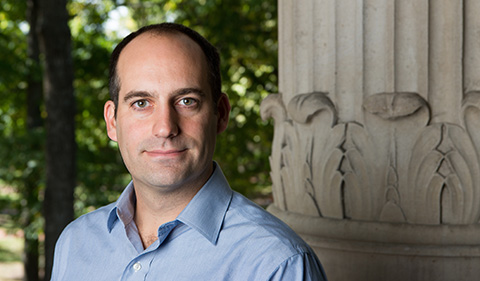
Associate Professor of Anthropology, Joseph Gingerich
by Harlee Rozell ’17
Assistant Professor of Anthropology, Dr. Joseph Gingerich, was recently awarded funding from the National Science Foundation to continue research on artifacts from the Shawnee-Minisink archaeological site, located in the Upper Delaware Valley in Pennsylvania.
According to Gingerich’s project summary, “detailed excavations of the Clovis level, dated to 12,940 CalBP (calibrated years before the present), have identified one of the oldest and most spatially intact Clovis campsites in North America.”
Clovis is an archaeological term for one of the oldest recognized cultures in the Americas dating from around 13,000 years ago. It is distinguished by a unique lanceolate-shaped spear point.
Gingerich’s goal with this research is to add to current knowledge of early hunter-gatherer groups in North America. He is also a research associate at the Smithsonian Institution and works at the Natural History Museum to complete the project. With his project, NSF is also supporting undergraduate training in archaeology through paid internships at the Smithsonian National Museum of Natural History.
His findings will be made available through the Smithsonian’s online databases to anyone interested in the project. He intends to utilize the data from this laboratory research, along with future excavations of the site, to gain a better understanding of the first peoples in North America.
“Results from this research,” Gingerich writes, “will contribute to our current knowledge of early people in North America, and address broader issues of hunter-gatherer diversity through time.”
Gingerich earned a Ph.D. in 2012 from the University of Wyoming and has always had a special interest in archaeology.
He began his first job in archaeology while still in high school, which influenced his career and academic interests.

















Comments